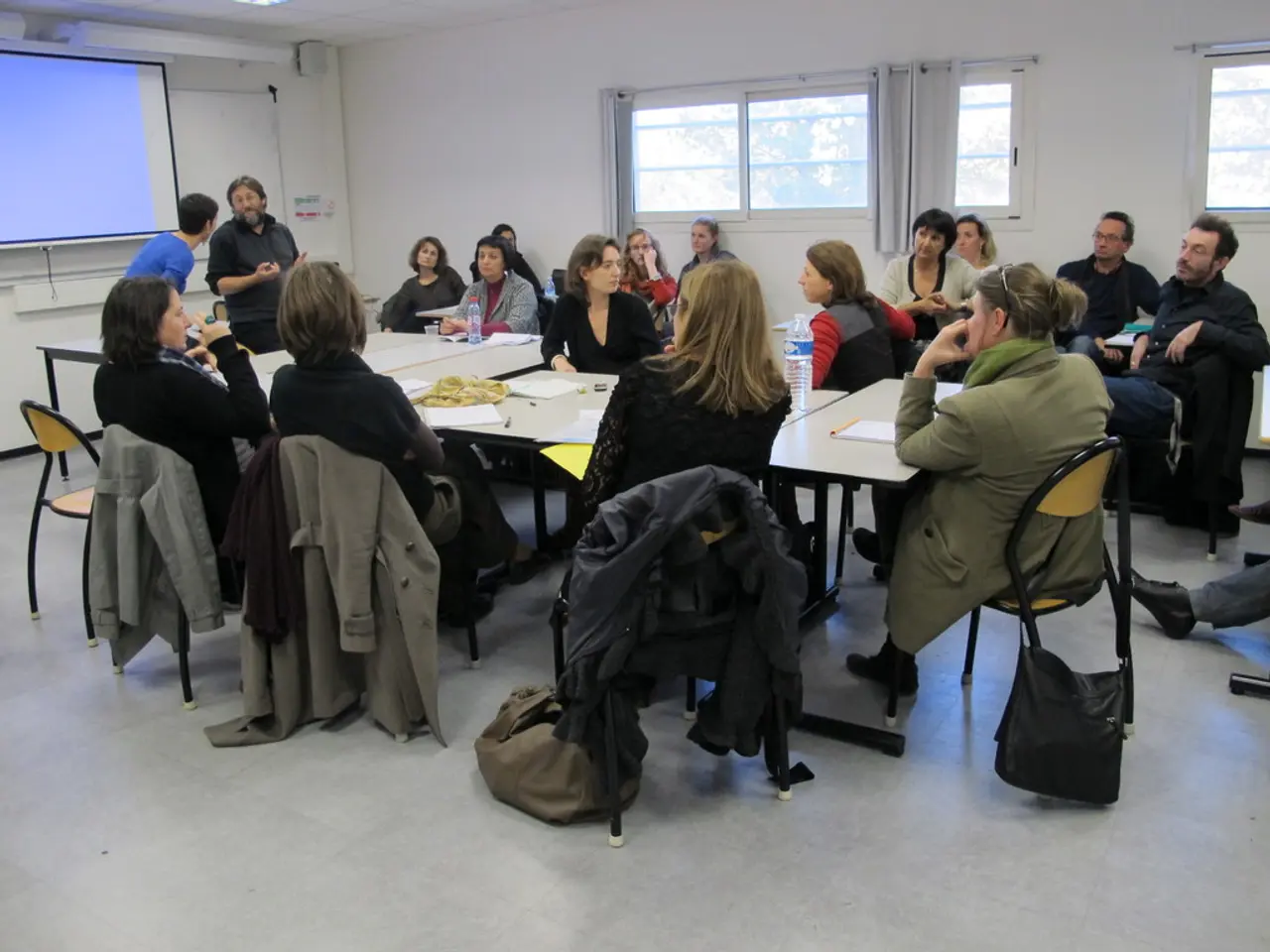Tactics for Harnessing the Power of English Learning Groups
Subtitle: Embrace the Journey to Improved English Proficiency with Supportive and Collaborative Learning Communities
In the realm of English language learning, challenges such as intimidation and maintaining consistency can often prove daunting. However, it's essential to remember that mistakes are an integral part of the learning process, and incorporating language learning into daily routines can significantly aid progress.
English learning communities, groups of learners and educators dedicated to improving English language proficiency, offer a wealth of opportunities to practice, improve, and polish skills. These communities can be found in various forms, including online forums, social media groups, local meet-ups, language exchange programs, and formal classes with a community-based approach.
Participating in these communities brings numerous benefits. Learners can expect improved social interaction, increased confidence in language practice, enhanced oral language skills, and a greater cultural connection and support. Engaging in these communities helps learners collaborate, negotiate meaning, and immerse themselves in authentic language use – all essential for effective English acquisition.
Effective strategies for participation include creating a safe environment for communication, encouraging conversations in partners and small groups, fostering a low-risk environment, honouring each learner’s unique cultural background, and adopting evidence-based instructional practices. Teachers and facilitators should focus on both academic and conversational language, scaffolding, and cultural responsiveness to support language development.
Active engagement is vital for maximizing learning. Participants should aim to actively participate in discussions, set clear, achievable goals, and engage in real-world scenarios, such as debates, to build confidence and develop practical communication skills.
Technology plays a crucial role in modern English learning communities, providing tools and resources to enhance the language acquisition process. These communities facilitate language exchange, cultural insights, and the sharing of learning materials and resources.
Moreover, English learning communities can support professional development by refining communication skills, networking with individuals from various professional backgrounds, and offering specialized language courses or workshops focused on business English, interview preparation, and resume building. Local meet-ups and language exchange programs offer an authentic environment to practice speaking and listening skills.
In conclusion, English learning communities provide a supportive and collaborative environment for language learners to overcome challenges, improve skills, and connect with a diverse community of learners and educators. By embracing these communities and adopting effective strategies for participation, learners can accelerate their proficiency and embark on a rewarding journey towards English language mastery.
By being a part of these diverse English learning communities, one can foster improved lifestyle practices that prioritize English language development, while simultaneously engaging in education-and-self-development activities. These communities extend beyond being mere study groups, offering immersive experiences that reinforce oral language skills, nurture cultural understanding, and shape professional growth.




